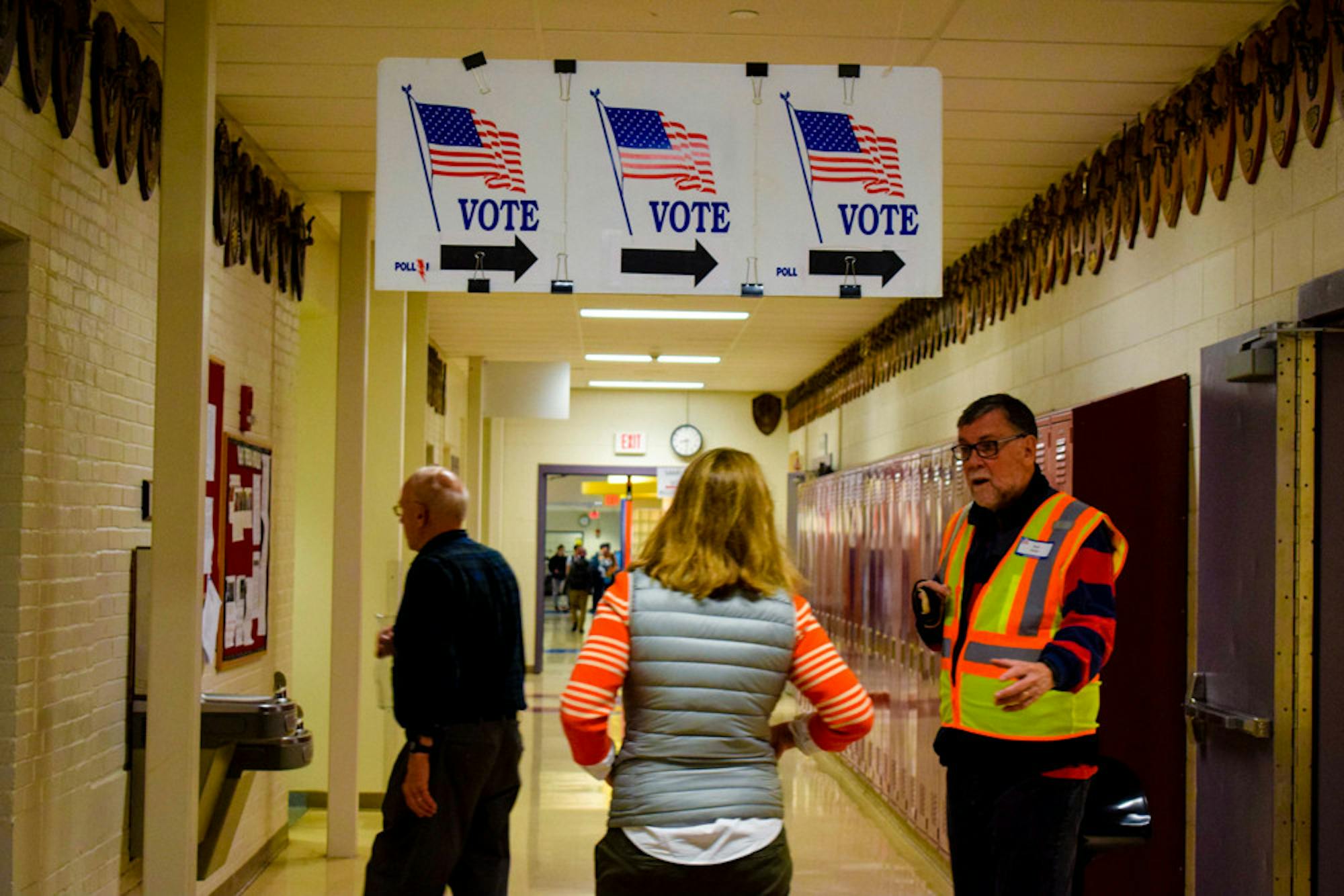After an extended dispute with the Democratic Party, which saw President Joe Biden removing his name from the Democratic ballot, New Hampshire has retained its first-in-the-nation primary status and will see voters at the polls today.
New Hampshire resident Deborah, who did not provide her last name, said she is concerned that Biden’s absence from the primary ballot will discourage people from voting. According to the New York Times, Biden refused to submit his name for the New Hampshire ballot after the state refused to recognize the DNC’s decision to give the first primary to South Carolina.
“It’s unfortunate that there’s this conflict between the [DNC] and the New Hampshire primary, where the primary candidate isn’t on the ballot,” Deborah said. “I think that’s confusing a lot of people right now. And I think it might mean that a lot of people don’t go to the polls.”
However, Deborah said that she supported the DNC’s decision to move the first primary to South Carolina — which was made so that the voter demographic of the first primary would be more representative of the entire United States.
“South Carolina is more representative of the nation as a whole than New Hampshire is,” Deborah said. “I think they made the right decision … it’s unfortunate that they couldn’t somehow come to some agreement with New Hampshire on what to do.”
Dartmouth Civics co-founder Bea Burack ’25 said that of the students she has spoken to, there is a “pretty even” split between those who opt to vote in New Hampshire as opposed to in their home states.
For students who opt to vote in New Hampshire, its first-in-the-nation primary status is a significant draw. Maxim Freedland ’23 said that he has voted in New Hampshire in past elections and will again in this election rather than in his home state of New York.
“I think it’s just more interesting to vote in New Hampshire because it’s the first place on the campaign trail,” Freedland said.
Karina Rao ’26, who will vote in New Hampshire this year and also did so in elections last year, said she felt her vote would mean more in New Hampshire — which is considered a swing state — than in Connecticut.
“My home state is pretty secure, politically, with my beliefs, and I think my vote would make more of an impact here,” Rao said.
Freedland said that some of the main issues that drive him to the polls are those that concern his life as a student, particularly since he is graduating from Dartmouth this year.
“I’m trying to think about how my student loans will affect me in the future,” Freedland said. “I’m trying to think about what’s important to me and my communities … there are a couple of social programs I’d like to see … given more funding.”
According to Freedland, there is “a lot of hopelessness” among his friends at Dartmouth toward this year’s candidates.
“A lot of people feel like they’re picking between the lesser of two evils — regardless of what side, or which person, they have in mind,” he said.
Rao noted that most of her friends consider voting important, but that everyday concerns can sometimes get in the way of civic engagement.
“A lot of the time, you’re stressed out with schoolwork, or have other things going on in the current moment, and [voting] becomes more of something that’s on the backburner,” Rao said. “But I think most people think it’s important and want to do it if they have the time.”
Burack said she urges those who feel disillusioned about the democratic process to remember that voting is not the only form of civic engagement.
“[Voting] is only a small part of what it means to be engaged in the civic process,” Burack said. “I’d encourage students who doubt the power of one vote to join efforts … that seek to empower voters at a larger scale.”
Leading up to election day, various campus organizations worked to ensure that students are registered and prepared to vote.
Burack said that Dartmouth Civics members tabled for 20 hours in various locations around campus to provide students with voting information. Yesterday, Dartmouth Civics members tabled for four hours in Novack Cafe and Collis Center, according to Burack.
“We stood in different spots on campus … talking to students and asking them if they have a plan to vote and if they’re interested in [receiving] more information about how they can vote,” Burack said. “We’ve talked to over 300 students at this point about voting.”
Dartmouth Civics is part of the Dartmouth Votes coalition alongside Dartmouth Student Government, the Office of Student Life and the Town of Hanover, according to the Dartmouth Votes website. The coalition is dedicated to encouraging civic engagement and helping students register to vote.
“We are a strictly nonpartisan group,” Burack said. “We don’t tell people who to vote for, but we help them learn how to vote.”
Rao said that she found campus-wide emails from DSG and the Office of Student Life about voting to be “helpful.”
Freedland also noted that the Dartmouth Civics table was a good resource for students to learn how to register to vote.
“There [was] a very helpful table in Collis with people who are open to answering questions,” Freedland said. “[I received] a couple of emails from Student Government and just looked up online how I can get my registration organized and where to go and what to do.”
In Hanover, voting will take place at the gymnasium of Hanover High School at 41 Lebanon Street from 7 a.m. to 7 p.m.
Voting in Lebanon will take place at the United Methodist Church at 18 School Street from 7 a.m. to 7 p.m.




